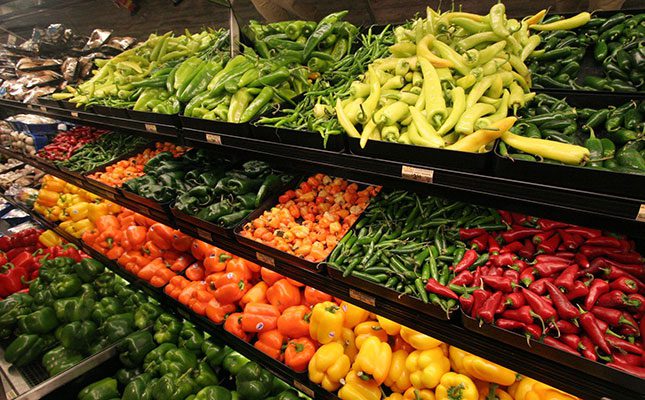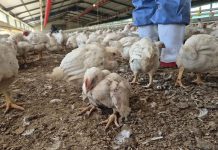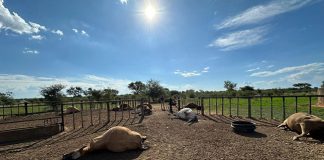
Economics, the environment and emotions. These are the biggest challenges facing the fresh produce industry, according to Wolk.
“We are living in unprecedented times. From digital transformation, shifting consumption patterns to global instability, it feels as if the goalposts are moving further and further away,” she said.
In terms of economics, she said farmers were caught in a cost price squeeze while consumer spending was under pressure.
South Africa’s inflation eased from an average of 6,9% in 2022 to 6% in 2023. Despite this, Wolk said that a Euromonitor International survey found that 86% of South African participants felt that produce prices were going up, whether this was true or not.
The survey found that consumers were seeking out more value in response to the tight economic conditions, with roughly 41% of those who felt that prices were going up, saying they would buy more items, or shop more often, at stores that offered loyalty or other award programmes. They were also looking for value in private labels and at discounters.
Wolk said the home cooking trend was continuing post-COVID-19 in South Africa and positively impacting vegetable sales at retailers. However, an increasing number of lower-income earners were purchasing from informal markets that were closer to home and offered a wide range of seasonal produce.
Simultaneously, environmental concerns were increasing pressure for more sustainable production practices, and influencing where and how food was purchased. Internationally, it was driving the local buying trend and demand for recyclable and biodegradable packaging.
On top of this, farmers had to deal with increased climate variability and extremes. “Extreme weather is becoming increasingly prevalent across the world. Water conservation and the implementation of sustainable water supply systems will become important to counter erratic rainfall moving forward,” she said.
Emotionally, Wolk said that consumers felt stressed and apprehensive: “In 2020, most of this stress was internal, but now consumers are feeling stressed because of external factors. They are struggling to manage household budgets, concerned over politics and world conflict, afraid that artificial intelligence might take their jobs, and concerned over climate change.”
To address these concerns, Wolk suggested that marketing agents demonstrated value, connected with consumers’ sense of belonging and nostalgia, and appealed to health concerns.
In terms of value, the idea was to create a feeling that people needed a product, and that it would make things better.
When it comes to their sense of belonging, Wolk said people wanted to feel they were accepted and belonged somewhere.
“South Africa has a vibrant culture and rich blend of ethnicity, tradition and religion shaping consumer behaviour. Savvy South African brands understand this and will leverage these influences to offer exceptional products and services that resonate with their clients.”
Euromonitor did a survey that found 62% of South African consumers supported small brands and 55% preferred to buy locally made produce from small businesses in their areas. “The vibrant tapestry of fresh produce grown in the country creates large room to take advantage of this trend,” Wolk said.
Forty-eight percent of the participants felt that small brands were more trustworthy than large brands, so Wolk encouraged larger companies to make themselves more personal and to better connect with clients to overcome this reaction.
Nostalgia, she said, was rooted in people’s culture but also in trust: “People are trying to escape the everyday and trying to find comfort in their purchases. To connect with this longing, marketing agents must tell stories, celebrate cultural identify and ensure that consumers know what they will get and what to expect from each purchase.”
She said the fruit and vegetable industry was perfectly positioned to take advantage of the health and wellness trend: “Obesity is prevalent and increasing globally. Worldwide, 1,9 billion people are overweight or obese, with about 50% of the people in South Africa falling in this category.”
Euromonitor lifestyle found that 54% of South Africans monitor what they eat to manage their weight, 58% indicated that they sought out foods with additional health and nutritional benefits, and 51% said they closely read the nutrition labels of products to ensure it had healthy ingredients. Seventy-eight percent of these consumers said they were willing to pay more for these features.
The increased focus on health was also creating opportunities in the snack markets, as 16% of the participants said they sometimes replaced meals with snacks, 47% snacked at work, and 32% took snacks with them when they left home.









